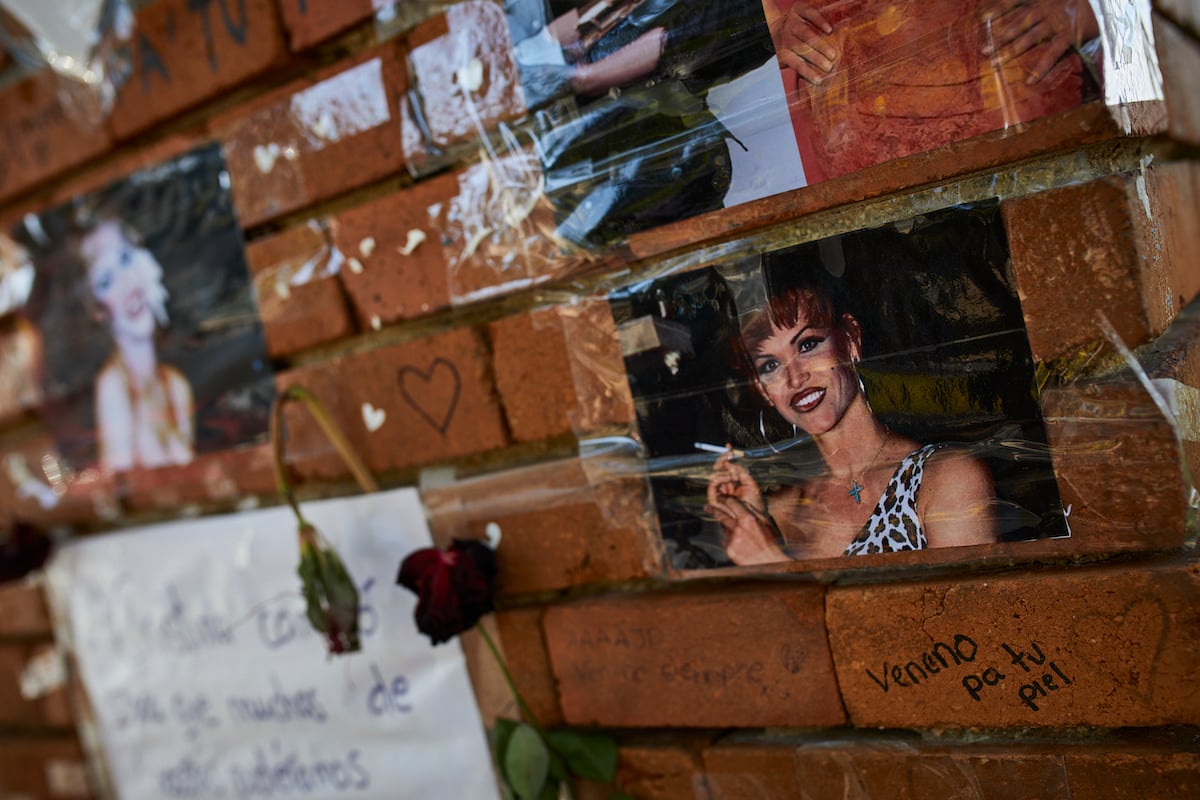‘Veneno’: The Big Difference Between the HBO Series and Real Life About How Cristina Went to Prison
HBO Max’s hit miniseries Veneno has been one of the most acclaimed LGBTQ shows of the past decade. The series chronicles the life of Cristina Ortiz Rodríguez, the Spanish transgender pioneer known more commonly as La Veneno.

HBO Max’s ‘Veneno’
Veneno tells the story of Cristina La Veneno through various vignettes portraying different times in her life. Her childhood in Adra and Marbella in southern Spain was filled with homophobic abuse from her mother and other townspeople, while her adult life in Madrid and other cities launched her to international stardom.
The story is mainly told through flashbacks, with Cristina looking back on various moments throughout her life and recounting them to Valeria Vegas, an author and journalist who takes on the project of writing a book about her life.
Valeria Vegas’ ‘Veneno’ book
After years of working on the book and difficulty finding a publisher, Vegas and La Veneno released ¡Digo! Ni puta, ni santa: Las memorias de La Veneno (I’m Telling You! Neither a Whore, Nor a Saint: The Memoir of La Veneno) in 2016, just one month before Cristina’s mysterious death.
In the book, La Veneno tells many of the stories that were shown in HBO Max’s miniseries. But there were many parts that were tweaked or left out entirely.
One major difference between the show and the book was the story of how La Veneno went to prison.

Cristina La Veneno’s home on fire
In the HBO Max series, Cristina is shown standing with her abusive Italian boyfriend Angelo (whose real name, according to the book, was Andrea Petruzzelli) as their apartment burns down. It was his idea to scam the insurance company for millions of pesetas — Spain’s currency before the euro. But how it happened in real life was very different, and much more dangerous.
“I was lying down resting in my house on Sor Ángela de la Cruz [Street],” she recalled in her memoir. “It was midnight and I was in my room with my dog Nika. I started to smell something burning and I got up. I opened my bedroom door and all I saw was flames and I closed it and ran. I started to cry and scream like a crazy woman while opening the balcony.”
“After 10 minutes the firefighters came, and they got me and my dog down with a ladder,” she continued. “I remember they also put an oxygen mask on me because of the smoke that was there. They put out the fire and when I went back in my house I saw that everything was melted — the TV, the stereo, and the furniture. At the very least, I could save the dresses that were in my room.”
Cristina La Veneno’s prison sentence
Cristina went on to place blame for the fire directly on her ex-boyfriend. “I knew that Andrea was the one who started that fire, because ever since I got paid for the porn movies and the three million [pesetas] that they gave me for the show [Tonight We Cross the Mississippi], once he saw that I had a lot of money, all he did was ask me to buy him a car,” she said. “Seeing that I told him absolutely not, he threatened me with setting my house on fire.”
The show accurately portrayed what happened next: he reported Cristina to the police for insurance fraud. “The son of a b—- went to the insurance to report the case and he called them anonymously, but later they knew it was him because of his accent,” she remembered. Because she hadn’t changed her name or gender legally, she was sentenced to three years in a men’s prison in April 2003 for arson and insurance fraud.
Unsurprisingly, she faced a tough time in prison due to the correctional officers as well her fellow inmates. They often gave her pills to calm her down, to the point that she became a walking “zombie.” “They treated me worse than an etarra [member of the Basque separatist group ETA],” she said honestly. “What they did to me won’t even be forgiven by God. I couldn’t even think about how my father was doing, or my mother, or Andrea; I just wanted to die.”


